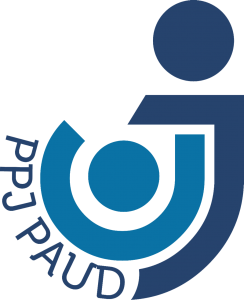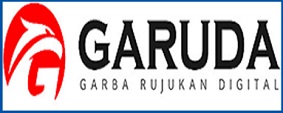Early Childhood Education : In The Past, Present and Future
DOI:
https://doi.org/10.26555/jecce.v2i2.1016Keywords:
Early Childhood Education, Muslim Character, The Concept of FitrahAbstract
This study aims to analyze the early childhood education development in the past in terms of the establishment history of an institution, the early childhood education development and implementation today and the early childhood education development in the future is seen based on the needs analysis and expectations of parents and educator. The study was conducted for 3 months from February to April 2019 at the Global Islamic School institution, on Jalan Raya Condet, East Jakarta. The research method is a qualitative approach with a case study strategy that aims to research natural object conditions, researchers act as key instruments, triangulation data collection techniques, inductive data analysis and qualitative research results emphasize more on meaning than generalization. The conclusion obtained is that the Global Islamic School combines two main concepts, namely the formation of the character of a Muslim with a global insight and combines the 4 concepts of the nature of the child, namely the heart, mind, exercise and feeling in helping children develop their potential and abilities.
References
Anderson, C. A. (1983). Computer Literacy: Changes for Teacher Education. Jurnal of Teacher Education, 6 - 9.
Astini, N. S. (2019). Pentingnya Literasi Teknologi Informasi dan Komunkasi Bagi Guru SD Untuk Menyiapkan Generasi Milenial. Seminar Nasional Dharma Arcaya Ke 1. Tantangan dan Peluang Dunia Pendidikan di Era 4.0 (pp. 113 - 120). Singaraja, Bali: STAHN Mpu Kuturan Singaraja.
Darmawan, J. (2018, November 28). https://aceh.tribunnews.com. Retrieved from www.serambinews.com: https://aceh.tribunnews.com/2018/11/27/menjadi-guru-era-pendidikan-40
Dincer, S. (2016). Assesing Computer Literacy of University Graduates. The Third International Conference on Open and Flexxible Education (pp. 294 - 303). Hongkong: The Open University of Hongkong.
Djamarah, S. (2002). Rahasia Sukses Belajar. Jakarta: Rineka Cipta.
Hermanto, Marsudi, Subali, E., & Hendrajati, E. (2018). Efektivitas TIK untuk Peningkatan Proses Belajar Mengajar di PAUD, TK dan Madrasah Diniyah "Mamba'ul Hisan Dusun Sekargadung, Desa Balerejo II, Kecamatan Panggungrejo, Kabupaten Blitar. SEMATEKSOS 3 "Strategi Pembangunan Nasional Menghadapu Revolusi Industri 4.0 (pp. 77 - 84). Surabaya: ITS.
Imam, F. N. (2015). Pemanfaatan TIK pada Pembelajaran Oleh Guru SMP Negeri 1 Ungaran Dalam Rangka Implementasi K13. Semarang: Universitas Negeri Semarang.
Ma¬la¬kaus¬kie¬nė, L., & Ša¬par¬nie¬nė, D. (2007). Com¬pu¬ter Li¬te¬ra¬cy in the Con¬text of Scho¬ol as a Le¬ar-ning Or¬ga¬ni¬za¬tion. Social Research / Socialiniai tyrimai, 73 - 85.
Merkel, A. (2014, Februari 19). https://www.bundesregierung.de. Retrieved Oktober 03, 2019, from https://www.bundesregierung.de/breg-en/chancellor: https://www.bundesregierung.de/breg-en/chancellor/speech-by-federal-chancellor-angela-merkel-to-the-oecd-conference-477432
Muthamainnah, I. (2016). Kesiapan Guru Kelas Menggunakan Media Teknologi Informasi dan Komunikasi (TIK) dalam Pembelajaran di Jakarta Selatan. Jakarta: UIN Syarif Hidayatullah Jakarta.
Nasution, L. H. (2013). Analisis Literasi Informasi Pengguna Perpustakaan Universitas Sumatra Utara. Bogor: Institut Pertanian Bogor.
Nurhayati, T. (2016). Probematika Guru dalam Menguasai TIK Pada Pembelajaran Pendidikan Agama Islam dan Solusinya di MI Al-Asy'ari Kuniran, Batangan Kabupaten Pati. Semarang: Universitas Negeri Walisongo.
Septina, R., & Akbariansyah. (2019). Meningkatkan Profesionalisme Guru Dalam Menghadapi Tantangan Global di Era Revolusi Industri 4.0. Seminar Nasional Pendidikan (pp. 713 - 724). Palembang: Pasca Sarjana Universitas PGRI Palembang.
Sturges, P., & Gastinger, A. ( 2010). Information Literacy as Human Right. Libri, 195-202. Retrieved from https://www.researchgate.net: https://www.researchgate.net/publication/259672528_Information_Literacy_as_a_Human_Right
Tashakkori, A., & Teddlie, C. (2010). Mixed Methodology. Mengombinasikan Pendeketan Kualitatif dan Kuantitatif. (B. P. Priadi, Trans.) California: Sage Publication.
Downloads
Published
How to Cite
Issue
Section
License
Authors who publish with this journal agree to the following terms:
- Authors retain copyright and grant the journal right of first publication with the work simultaneously licensed under a Creative Commons Attribution-ShareAlike 4.0 International License that allows others to share the work with an acknowledgement of the works authorship and initial publication in this journal.
- Authors are able to enter into separate, additional contractual arrangements for the non-exclusive distribution of the journals published version of the work (e.g., post it to an institutional repository or publish it in a book), with an acknowledgement of its initial publication in this journal.
- Authors are permitted and encouraged to post their work online (e.g., in institutional repositories or on their website) prior to and during the submission process, as it can lead to productive exchanges, as well as earlier and greater citation of published work (See The Effect of Open Access).















